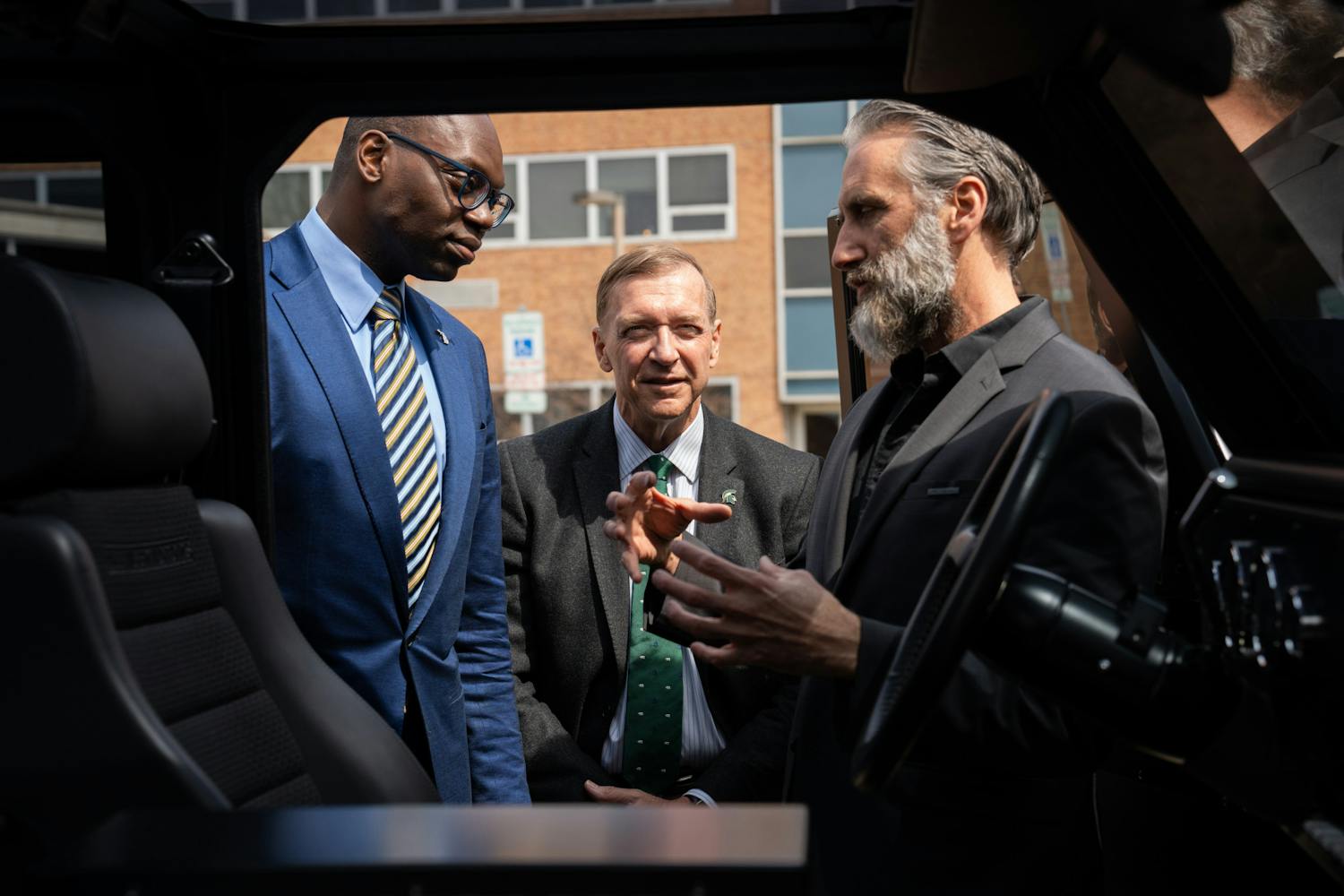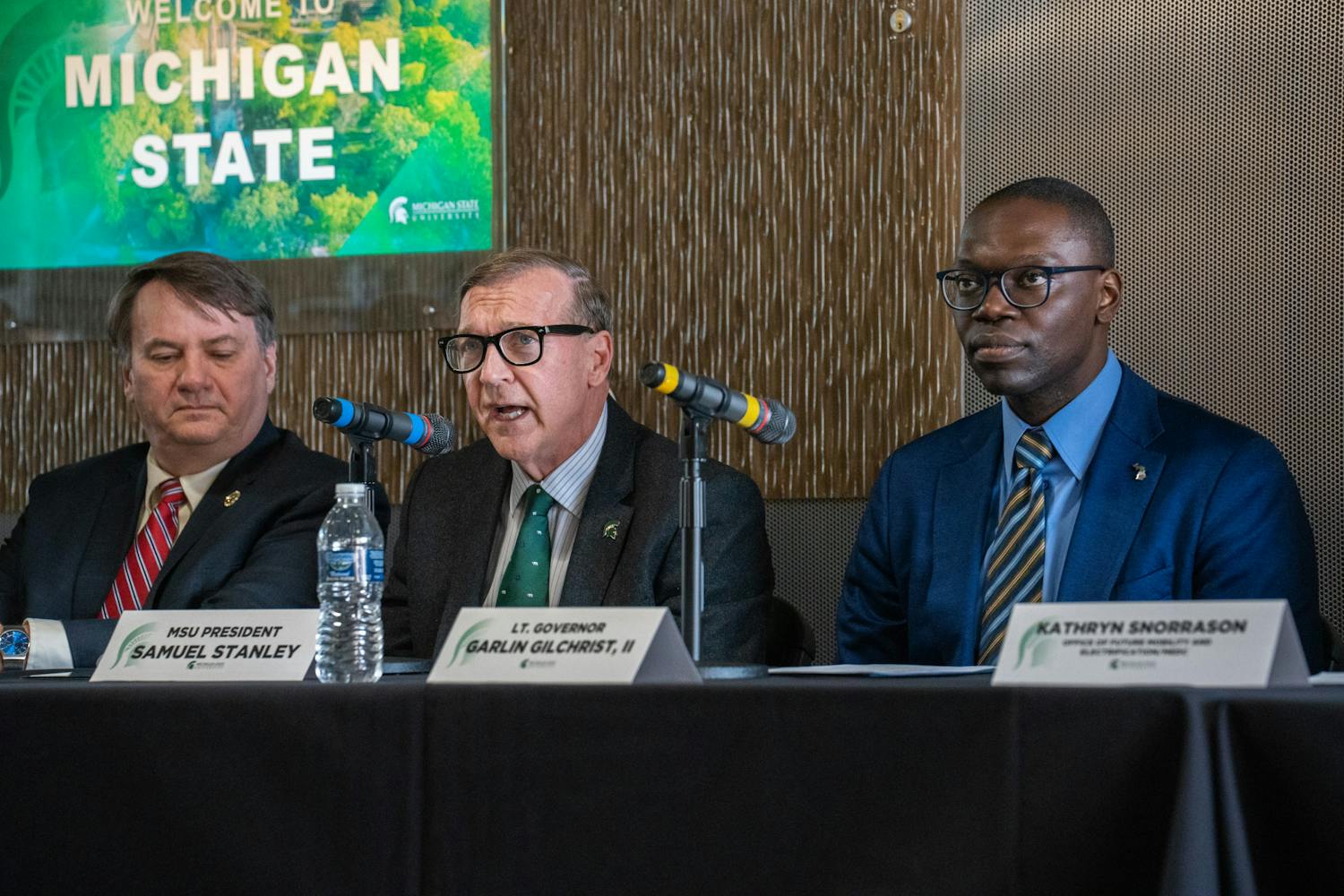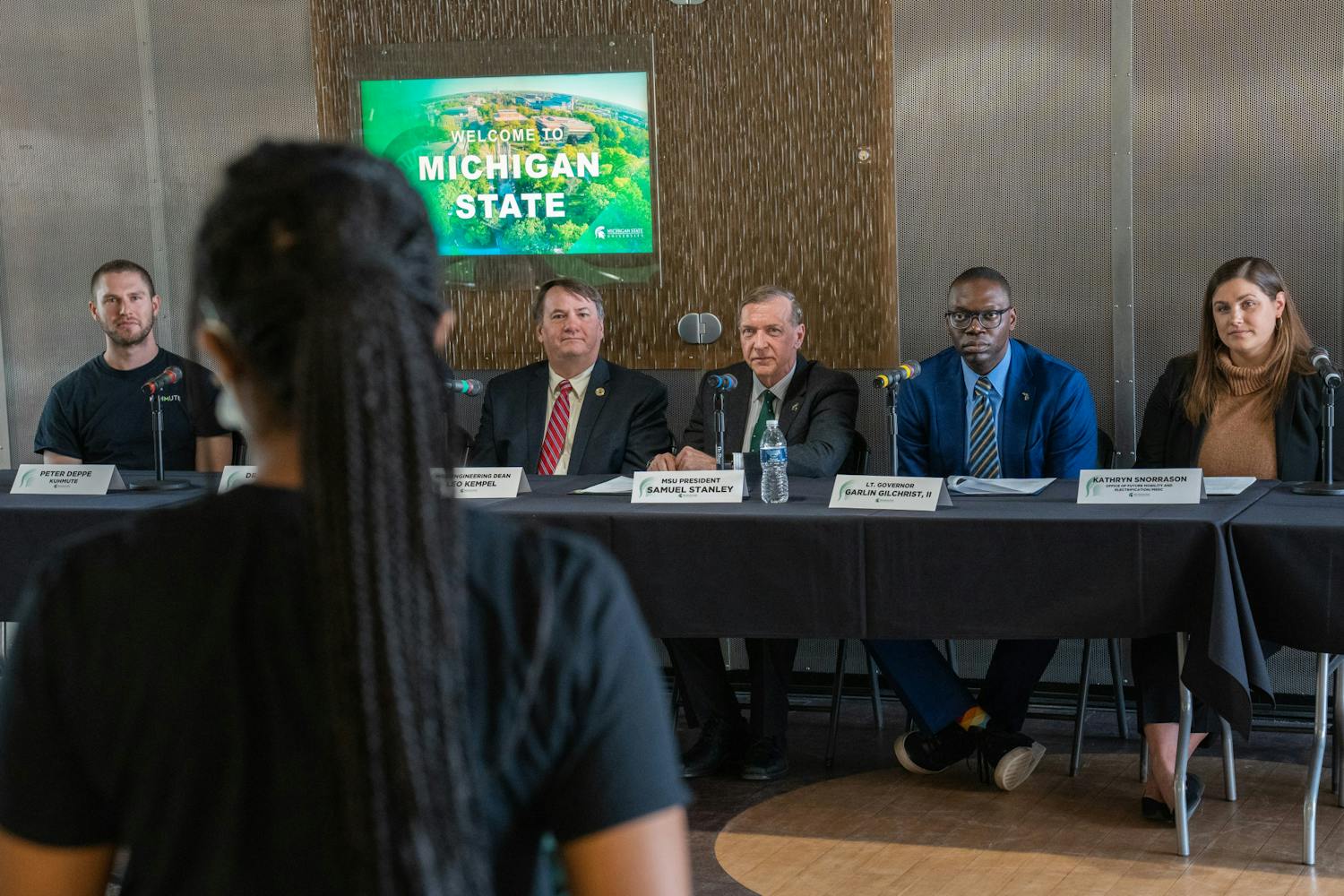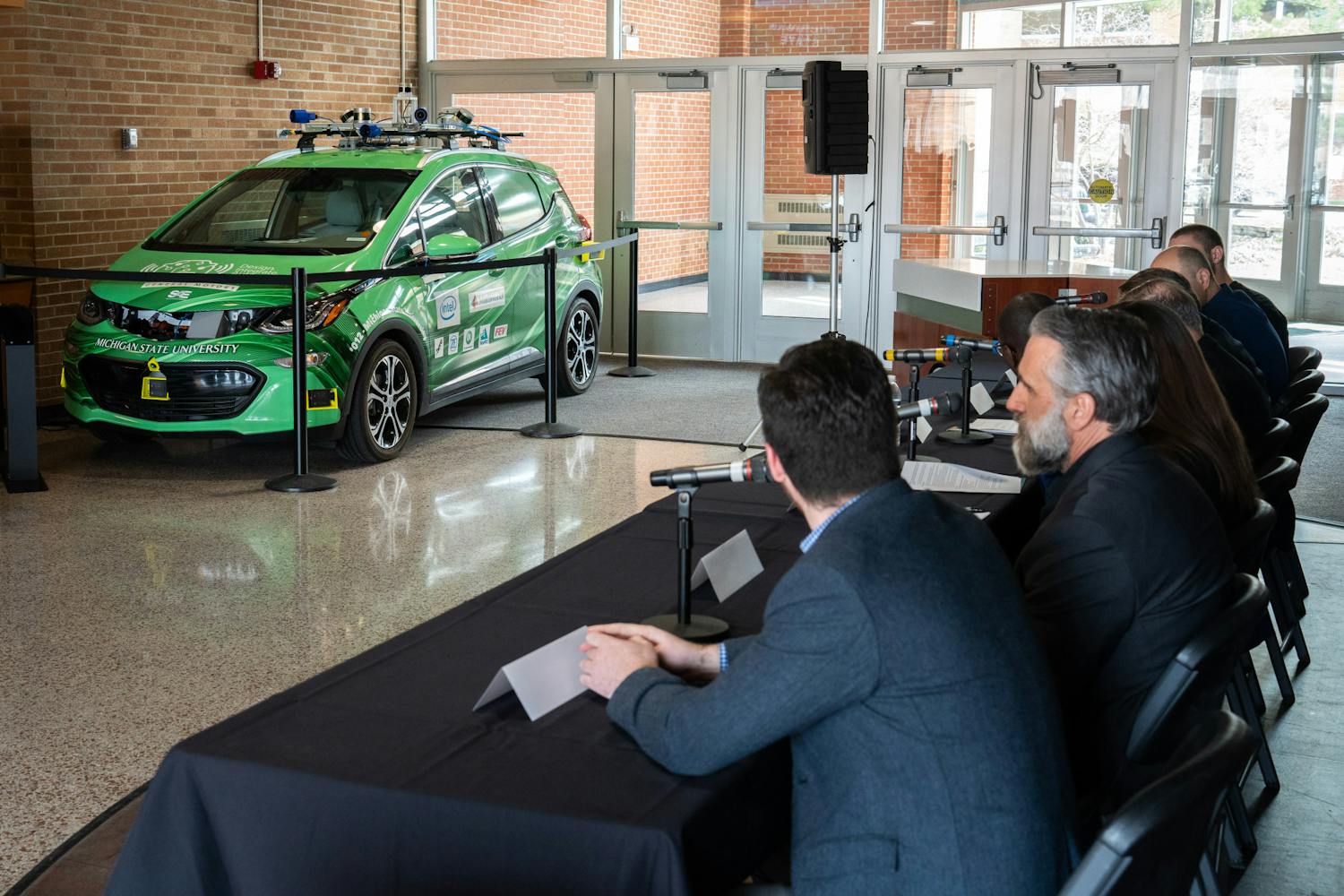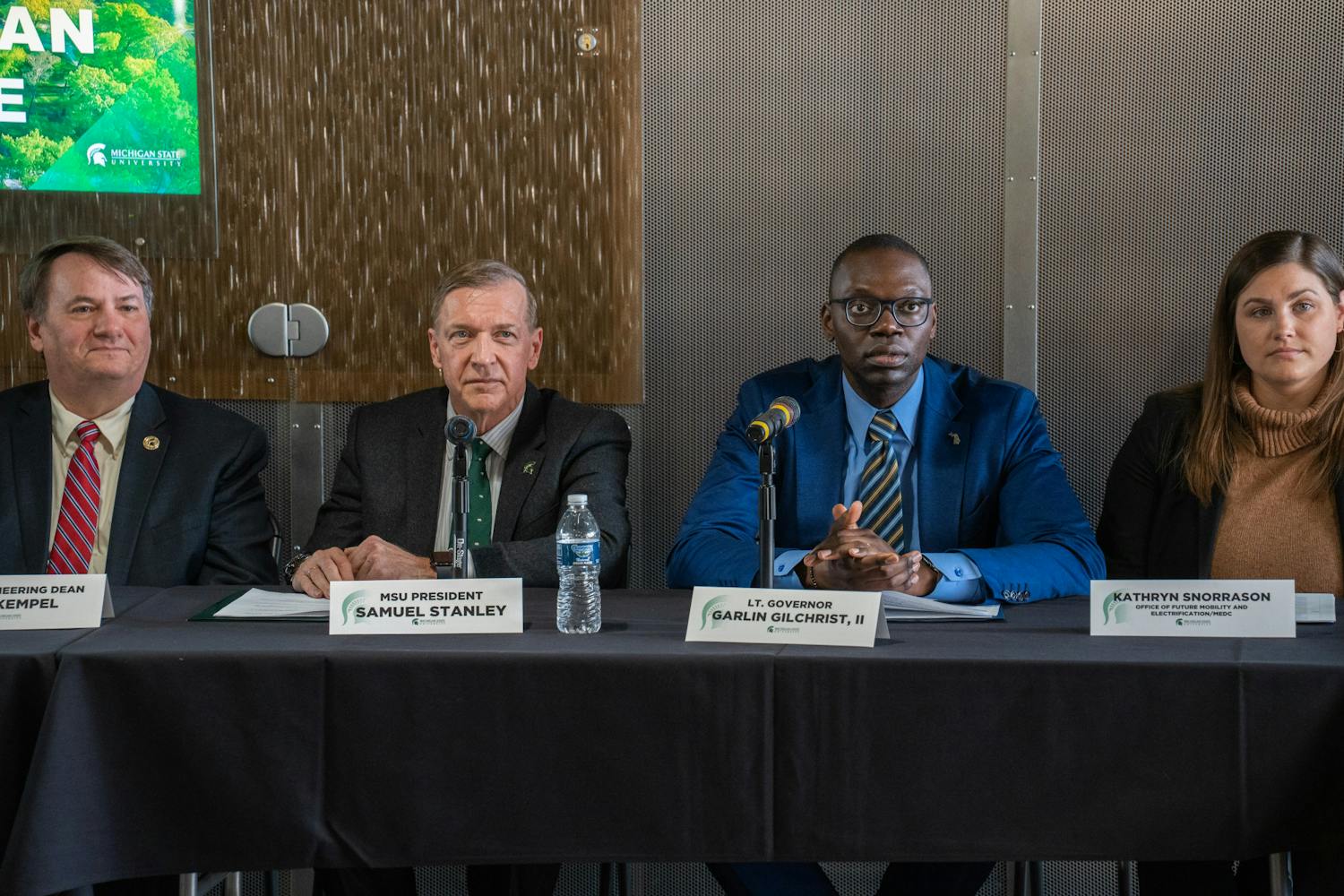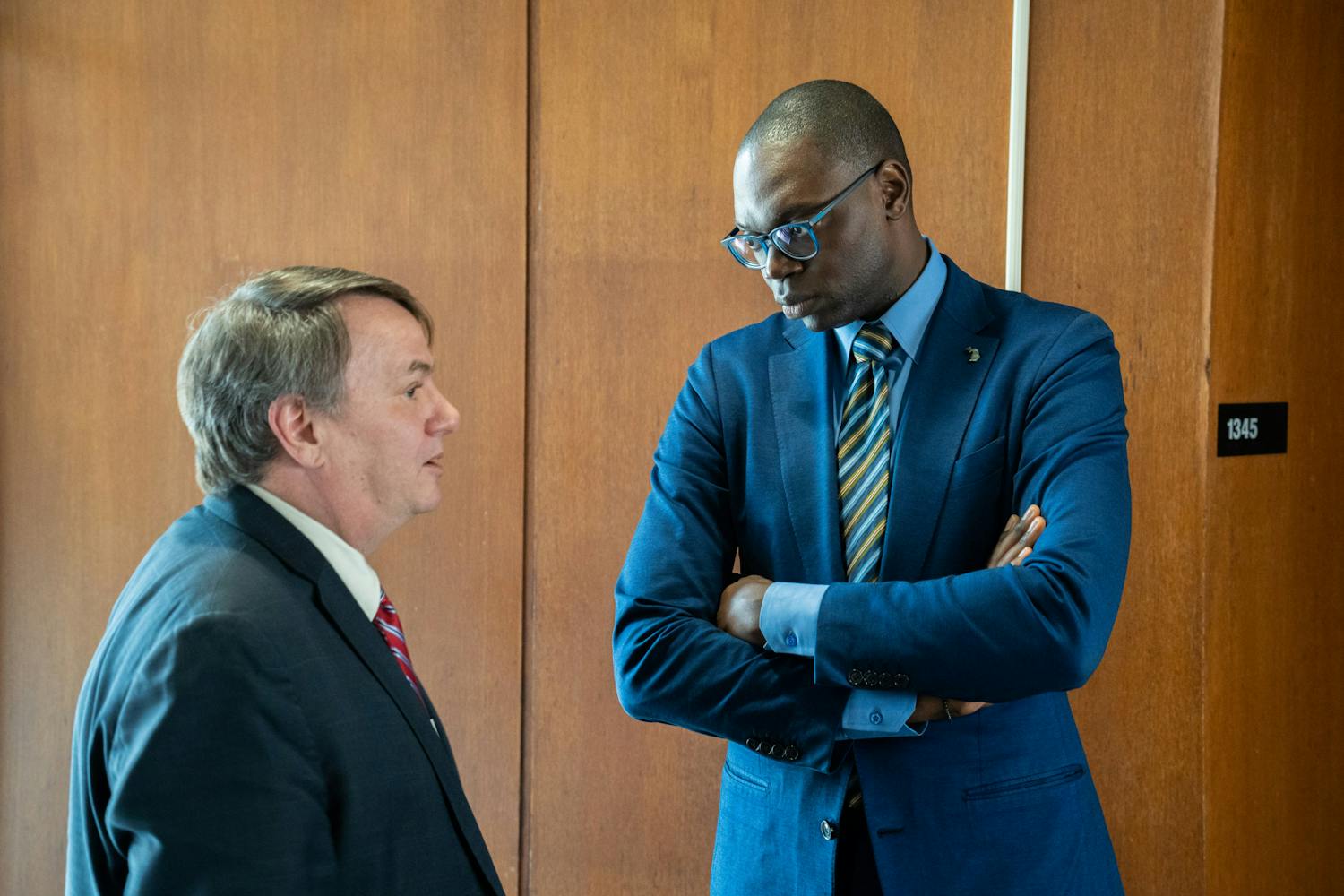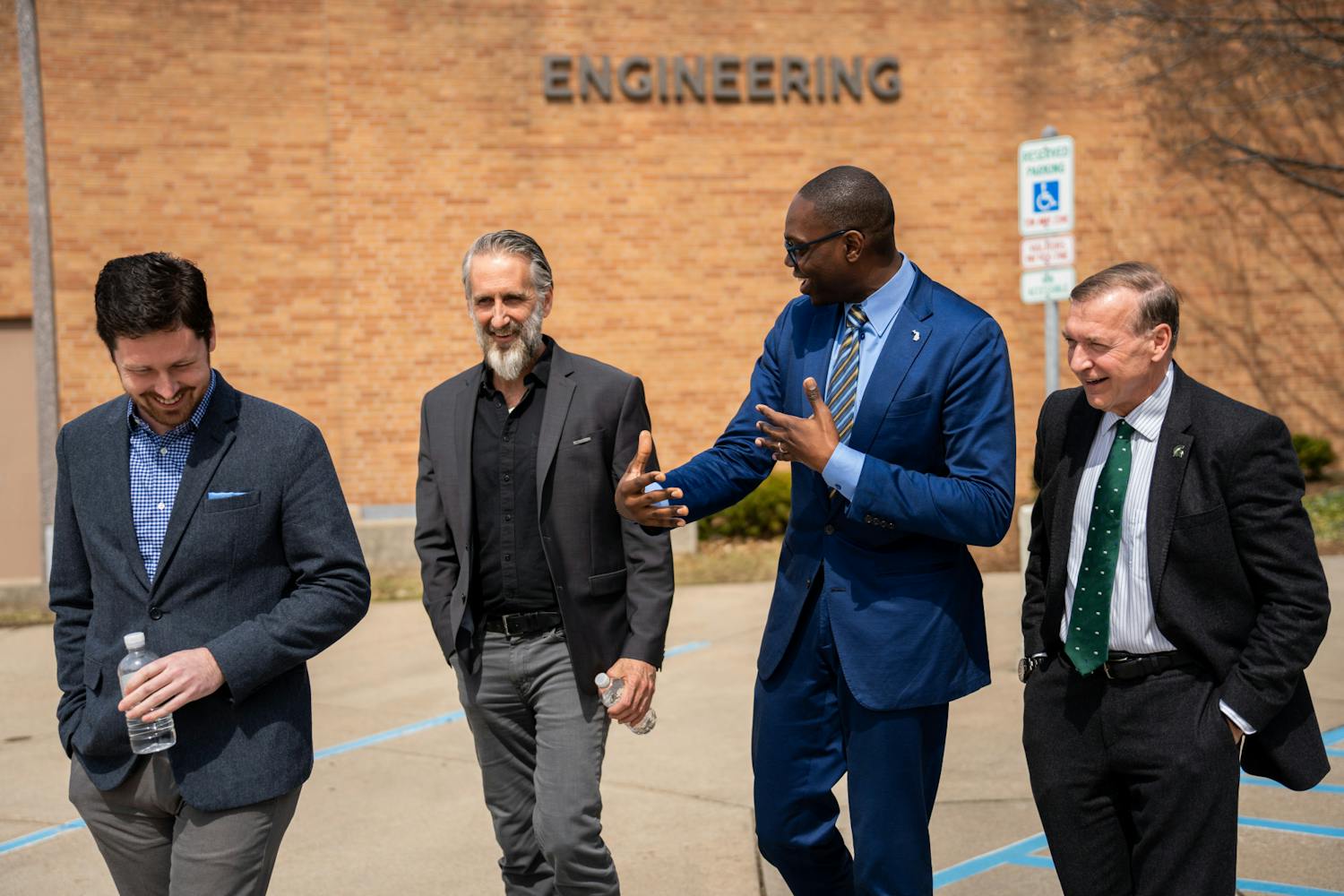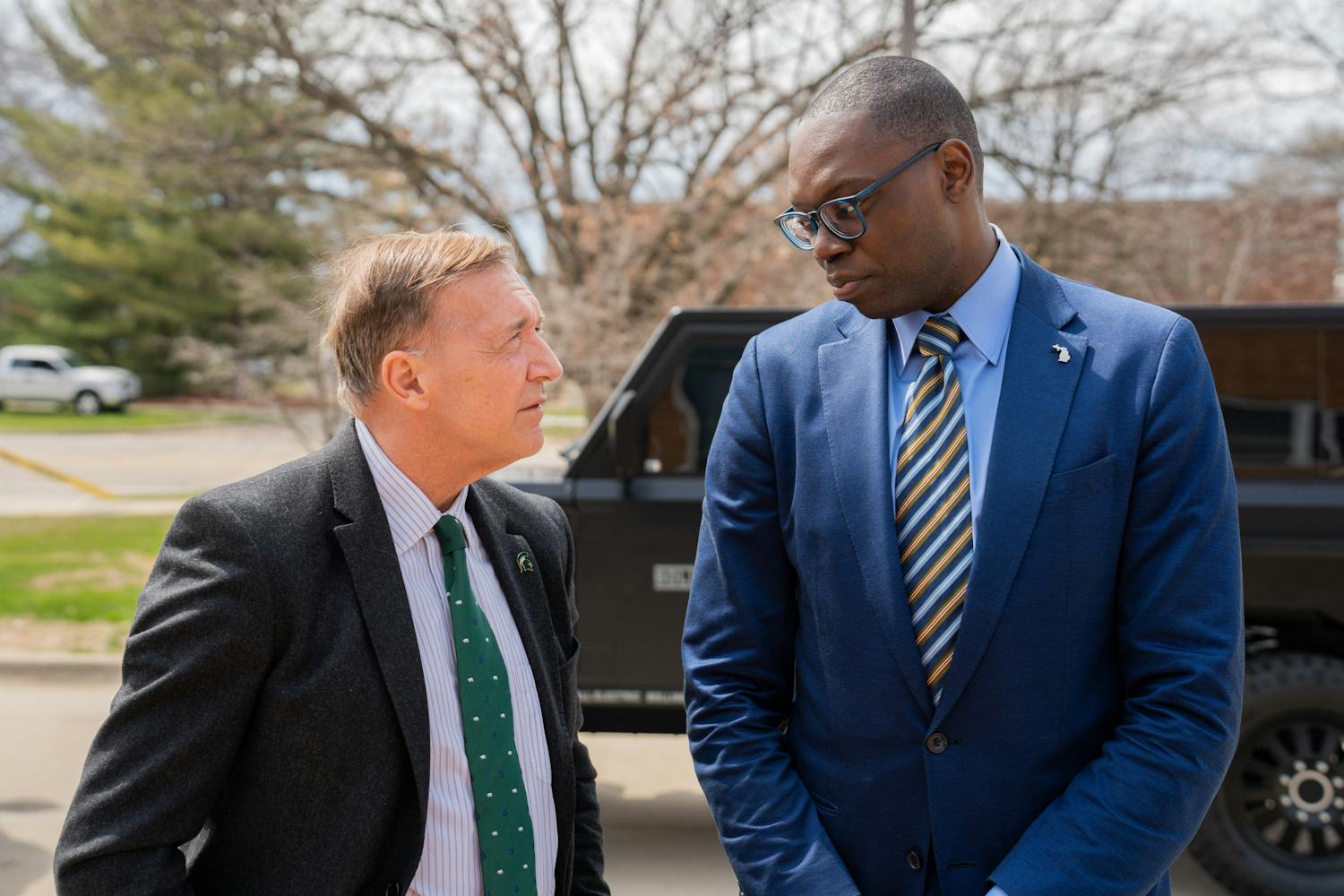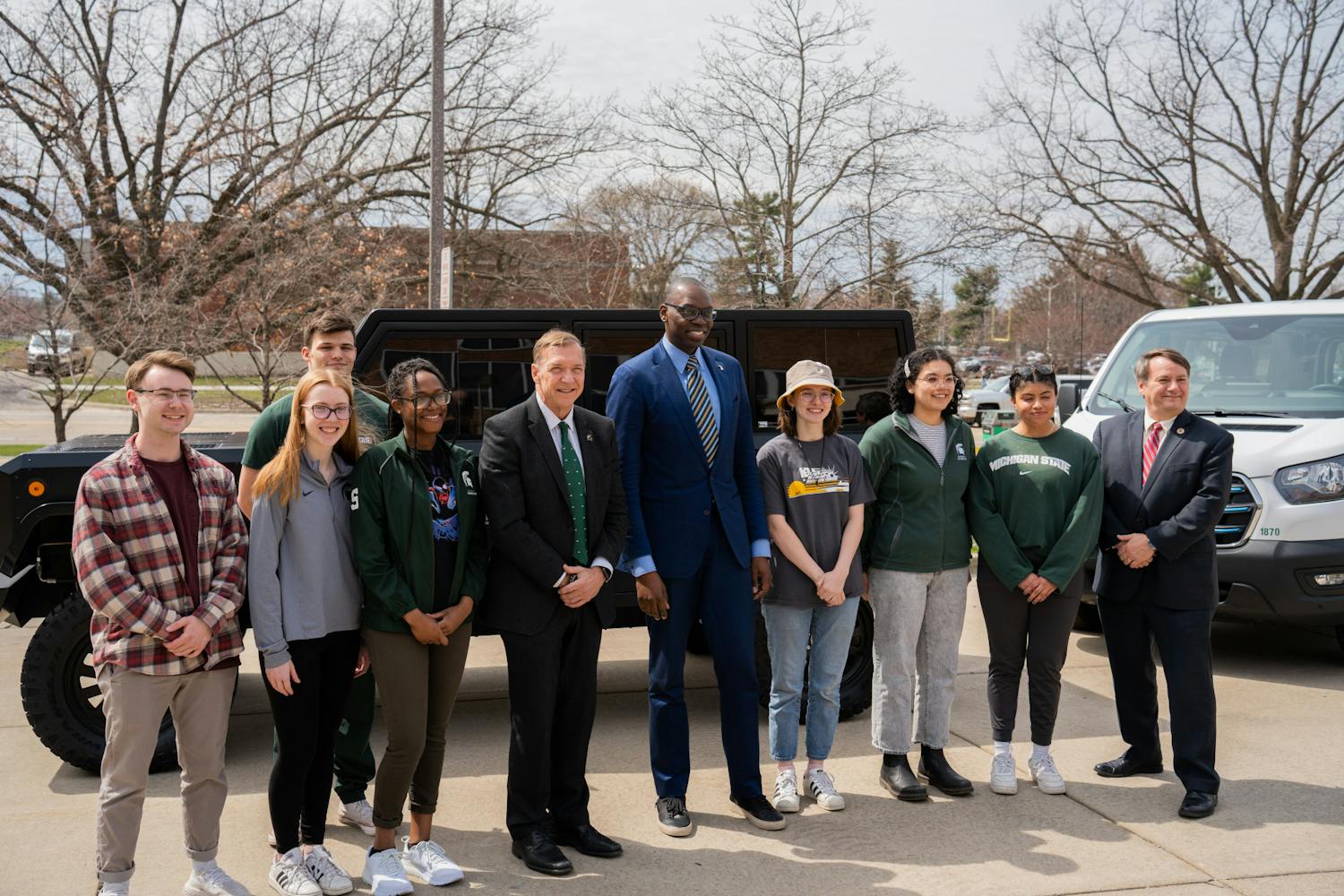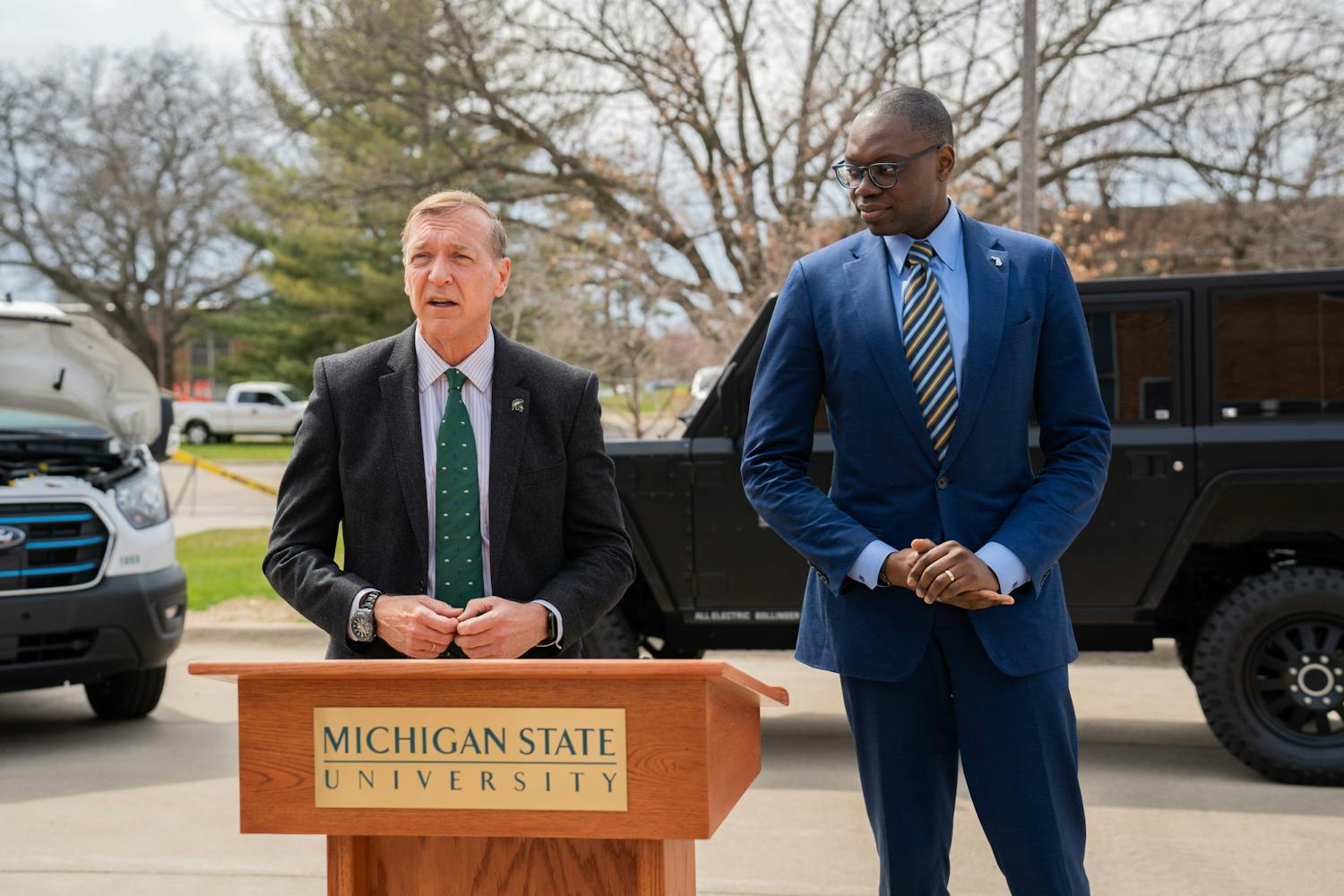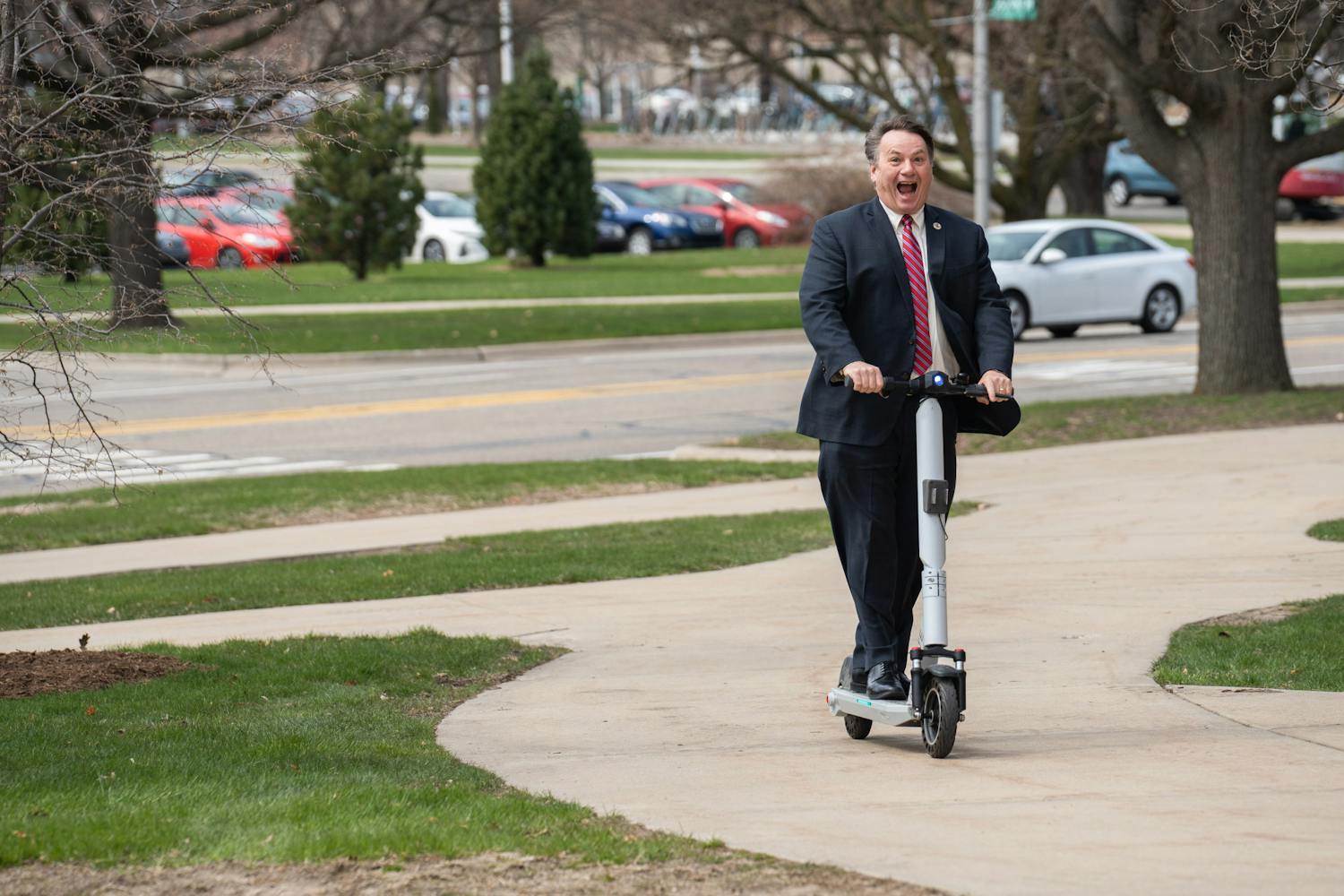A roundtable discussion, consisting of business and governmental leaders and students, met to talk about electric vehicles and autonomous mobility strategies in the state of Michigan Wednesday in the atrium of the Engineering Building.
Speakers included MSU President Samuel L. Stanley Jr., Michigan Lt. Gov. Garlin Gilchrist II, College of Engineering Dean Leo Kempel, Managing Director for the Michigan Office of Future Mobility and Electrification Kathryn Snorrason and more.
“MSU is preparing the world's next generation of thinkers and doers, leaders who will help our state of the standards proud legacy of mobility innovation,” Stanley said. “It's an honor for MSU to support conversation on the future of electric vehicles and sustainability, and how critical public private partnerships are in this space.”
Stanley said sustainability is a key pillar of MSU’s new strategic plan, and the goal is to significantly decrease the university’s carbon footprint and become climate neutral by 2050.
Efforts including an electric autonomous bus, installation of solar panels across campus and the STEM learning and teaching facility – which stores carbon and prevents its release — have been put in place by MSU in order to accomplish that goal, Stanley said.
“Every day, researchers are creating solutions for the future of mobility,” Stanley said. “These discoveries and advancements contribute to a promise of a cleaner, more efficient future with a smaller carbon footprint for us all.”
Stanley also acknowledged MSU was recognized, for the third consecutive year, as one of the top 50 Green Colleges for 2022 by the Princeton Review.
“Sustainability and mobility, now more than ever, must be intertwined for the health and wellbeing of our communities and that of our economy,” Stanley said. “MSU’s academic excellence is underscored through our research and development in the mobility space.”
Gilchrist, who earned bachelor's degrees in computer engineering and computer science from the University of Michigan, emphasized Michigan as a revolutionary in the automotive industry, and now, a leader in mobility solutions.
“More than 100 years ago, enterprising individuals and teams in my hometown of Detroit, they put the world on wheels and they put a lot of time going electric by wheels,” Gilchrist said. “Now we're on the cusp of another revolution. We’re on the cusp of this electrified and autonomous future for mobility, and the state of Michigan (and) Michigan State University is going to be one of the epicenters for the of thinking, research and development and scaling of new technologies that are going to walk us through to that future.”
Gilchrist said he and Gov. Gretchen Whitmer are committed to investing in the future of mobility strategies and made investments in manufacturing, infrastructure and in Michigan’s workforce.
“We have targeted adoption with lowering costs for families buying electric vehicles, striving for more EVs and more garages in every park in the state of Michigan,” Gilchrist said. “Late last year, we signed an economic development legislation that helped us create jobs and land huge EV projects in Michigan.”
Engineering students had the opportunity to ask speakers questions and share their ideas and experience in the mobility and electric vehicle industry.
Computer engineering senior Katie Albus said she has learned the artificial intelligence, or AI, side of autonomous vehicles through her research at MSU and was happy the speakers were so interactive with the students during the discussion.
“I’ve been doing research since my freshman year,” Albus said. “It felt like (the speakers) actually cared about our experience and wanted to continue improving the college experience for the future of Michigan.”
Computer science senior Gigi Padalec said it was an awesome opportunity that the speakers, including Stanley and Gilchrist, came to the College of Engineering for the discussion.
“It was really eye opening to see all of the green environmental impact that MSU is making and see that they really want to grow here at MSU,” Padalec said.
Mechanical engineering senior and president of the MSU solar car racing team Julia O’Mara said she will start working for Ford as a powertrain noise, vibration and harshness, or NVH, research analyst, this summer.
“It’s such a great time to get into autonomy, electrification,” O'Mara said. “These projects, like the autonomous car and bus here at MSU or being on our solar racing team, (are) going to be really important for learning about that kind of industry.”
Support student media!
Please consider donating to The State News and help fund the future of journalism.
O’Mara said she felt lucky she was there at the discussion, in the moment with so many important people.
“It feels good to be seen and to know that the higher ups acknowledge what we’re doing on our team and know that it’s a big deal, and these students are going to be pushing for electrification for the future,” O’Mara said.
Discussion
Share and discuss “Michigan leaders discuss future of autonomous mobility at roundtable event ” on social media.
